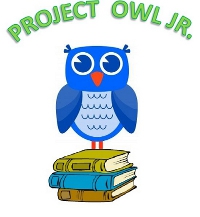User:Owl Jr. Project
Welcome to our class counterpart of the Sugar Labs wiki.
The Owl Jr. Project is modeled after the Purdue Online Writing Lab (OWL), which provides literacy help guides for college students. However, the Owl Jr. is aimed at a younger audience and will provide command of language materials for K-12 students. It was initiated by faculty and students from Oakland University in Rochester, Michigan, under the guidance and direction of John Tierney.
As part of the service learning coursework in a Literacy, Technology and Civic Engagement course, our class divided into teams and completed multiple projects over one semester. Our objective was to investigate Sugar strategies and challenges to classroom use, while also finding creative ways to circumvent common problems. In doing so, our goal was to expand SugarLabs' efforts by providing additional literacy resources.
This project was conducted in two parts. The first half of the semester, five teams conducted preliminary research and background investigations.
During the second half, the class was reconfigured into seven teams who produced reports, multi-media presentations, educational materials, a petition and game ideas. Links to each of these materials can be found in the following sections of this page.
Our website is: http://owljrproject.weebly.com/
Sugar / Literacy Connection - Peer Review
(Focus: Software / User / User Needs Assessment)
Why peer review is so important:
Peer review is vital in all areas of industry and in nearly every field or profession. Reviewing the work of peers allows for constructive criticism as well as allowing people to the share ideas through collaboration. It also prevents needless errors prior to sending a piece of work off for formal review.
The value of peer review has been demonstrated, not only in the workplace, but within all levels of education. In fact, peer review has been shown to have dramatically positive effects on student work. A 2008 study conducted by Cho, Cho & Hacker evaluated the writing of over 600 graduate and undergraduate students. “Students who developed successful SM [ie: self-monitoring by way of self-evaluation and peer evaluation] dramatically improved their writing compared with those who did not.” (Cho, Cho & Hacket, 2008). Thurmond affirms the value of students being able to “reflect and share with others” (1999). Likewise, Minsky points to the ability to identify “the most common mistakes” as a significant part of the writing process (2010).
Providing a feedback loop for students allows them to identify areas of weakness, reflect on their approach and revise their work for correctness and clarity. Peer review provides that imperative feedback loop. Instituting peer review at the basic levels of education provides these benefits early on, to improve student work at the fundamental stages.
References:
Cho, K., Cho, M. & Hacker, D. J. (2008). Self-monitoring support for learning to write. Interactive Learning Environments 18(2), 103-113.
Minsky, M. (2010). Questioning “General” Education. Retrieved from: http://web.media.mit.edu/~minsky/
Thurmond, A.M. (1999). Seymour Papert and Constructionism. Retrieved from:http://userwww.sfsu.edu/~foreman/itec800/finalprojects/annmariethurmond/home.html
The following link takes you to this team's recommendation report.
File:Literacy-Peer Review Proposal.pdf
Teacher Needs and Sugar
(Focus: Education, Ethnographic Research, User Needs Assessment)
The goals of this project were to:
• Investigate what teachers need to better use Sugar and come up with a list of recommendations and/or materials
• As per Walter Bender's suggestion, determine what/how lesson plans for teachers could help with classroom integration of Sugar resources
• Utilize Group 4's investigation of Sugar usage in Title 1 schools
• Root all suggestions in current best practices for literacy education and be supported with research
The following is the end-of-semester report for Fall 2011.
File:Teacher Needs & Sugar-Usability Report.pdf
Sugar / Literacy connection - Journaling / Diary activity and Writing to Learn
This group was instructed to:
• Investigate ways that we might take already existing sugar activities and encourage more literacy activities-based on our discussion with Walter Bender (This might include revamping the journal, writing lesson plans for teachers, etc.)
• Think of how we might encourage developers to implement peer review/reflection into the Journal activity by conveying 1) their importance and 2) teacher demand for these capabilities
• Root all suggestions in current best practices for literacy education and be supported with research
The following two documents contain 1) a report on the value of writing to learn and 2) a petition for Journal revision to be signed by teachers.
File:Journal Revision Report.pdf
File:Petition for Journal Revision.pdf
Resources for Teachers-OWL Jr. Materials
(Focus: Research, Educational Content Development)
The following are the end-of-semester literacy materials developed for Fall 2011.
Face of the Project (Web)
(Focus: Web Development, Graphic Design, Multimedia)
The following is a report discussing our options for creating an online presence for Owl Jr.
File:Face of the Project Report.pdf
Face of the Project (Video / Multimedia)
(Focus: Graphic Design, Multimedia)
The following contains links to the end-of-semester multimedia projects for Fall 2011.
File:Face of the Project II.pdf
The Gaming Group
(Focus: Graphic Design, Multimedia)
The following contains screen shots of a proposed Sugar literacy activity, created Fall 2011.
